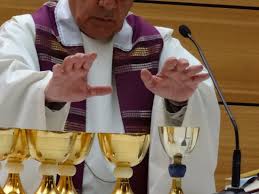Our Worship
SUNDAYS @ 10:30 AM
Since the early days of Christianity, it was said that what Christians pray leads to what they actually believe (lex orandi, lex credendi). Liturgy does more than provide us with well-written prayers and an ordo for worship services. Liturgy molds the Church in her image. The Book of Common Prayer is the prayers of the saints, the prophets, the apostles, and - most importantly - the eternal Logos. Standing upon the very words of scripture, the Book of Common Prayer forms Christians because God’s words will not return to him void. Praying with the communion of saints united to Christ in baptism and Eucharist can have no other effect than closer union with God.
It is commonly said that there are three streams that nourish and give life to our Anglican worship. While each local church tends to accentuate one of these streams more than the others, Anglicans as a whole are committed to holding all three streams together - the Scriptures, the Sacraments, and the Spirit. Anglican churches are unified around these three streams, though diversified in their expression.
Anglicans believe that we meet and experience God through the Scriptures, God’s inspired Word that contains all things necessary for salvation. The Scriptures reveal the story of God working to restore his good creation from the effects of sin and death through Jesus Christ and the Holy Spirit. It is the story the church finds itself a part of, and so it is the story that we strive to embody in our own context. The liturgy and lectionary ensure that Anglicans are among the most prolific Bible-reading Christians in the entire world.
Anglicans believe that we meet and experience God through the Sacraments, especially in Baptism and the Eucharist. A Sacrament is an outward and visible sign of an inward and spiritual grace; it identifies a place where God has promised to meet his faithful people. Though God is indeed present everywhere, we encounter him through the Sacraments in a unique way. The Sacraments, along with the liturgy itself, reminds us that this physical world matters and one day it will be filled with the light and life of God. The Sacraments are a foretaste for the church of that coming heaven-and-earth reality.
Anglicans believe that we meet and experience God through the Holy Spirit. By definition, the church is made up of those empowered by the Holy Spirit to follow Jesus Christ in seeking first the kingdom of God. Anglicans trust that God works through his Spirit in a variety of ways: in baptism and the Eucharist, our prayers, the laying on of hands, serving the poor, anointing with oil, and healings, among other things. And since the Spirit of God is among the people of God, each person is called upon both to cultivate the fruits of the Spirit and to utilize the gifts of the Spirit.
SACRAMENTAL

EVANGELICAL

CHARISMATIC
